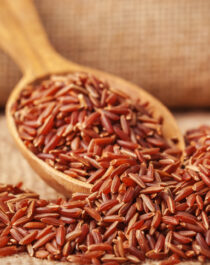Inflammation is your body’s response to infection or injury. It can be good or bad depending on the situation. Good inflammation is a crucial reaction thatfends off foreign invaders and heals injuries.
On the other hand, chronic inflammation is linked to an increased risk of diseases including heart disease,obesity, diabetes or even cancer. The foods you eat can significantly affect inflammation in your body. Here, let’s take a look at the top pro-inflammatoryfoods you should avoid.

Sugars
Diets with added sugar are thought to signal the production of pro-inflammatory molecules that can raise the risk of chronic inflammation that is linked to major diseases such as diabetes, heart disease, arthritis, Alzheimer’s and even cancer. Avoid soft drinks, candy, pastries and sweet snacks.

Trans fat
Trans fat is considered the worst type of fat to eat. Consuming trans fats may increase inflammation and your risk of several diseases, including heart disease. Foods that have trans fat include fast foods, commercially baked goods and fried products.

Refined carbohydrates
Refined carbohydrates are found in bread, pasta, pastries, cereals, cookies, cakes and all processed foods that contain added sugar or flour. These high-glycemic index foods fuel the production of advanced glycation end (AGE) products that trigger inflammation.

Excessive alcohol
Everyone knows alcohol is bad for health. Prolonged heavy drinking can overload your liver with toxins and injure your liver cells, producing inflammatory responses. This condition is known as alcoholic hepatitis.

Artificial food additives
Artificial food additive like monosodium glutamate (MSG) is one of the most employed food taste enhancers. There’s MSG in fast foods, seasoning blends, processed foods and canned foods. It reportedly prompts inflammatory responses and metabolic disorders.











